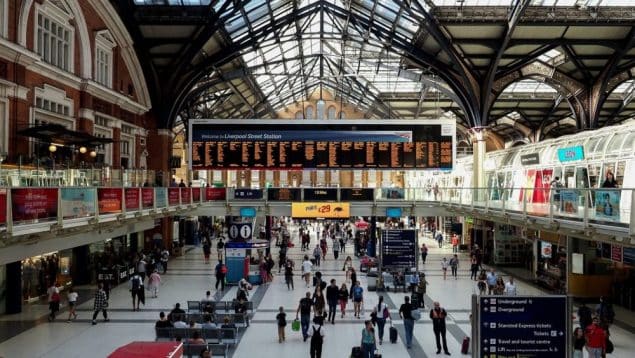Home » UK Business & Employment News • UK Employment news » Rail strikes cause widespread travel chaos in the UK
Rail strikes cause widespread travel chaos in the UK
https://www.whatjobs.com/news/united-kingdom/uk-employment-news/rail-strikes-cause-widespread-travel-chaos-in-the-uk

Large-scale rail strikes are causing major chaos across the UK, affecting thousands of travellers.
Aslef, the train drivers' union, has initiated a strike, causing the suspension of train services in various parts of the country today (Friday, September 1).
Meanwhile, the Rail, Maritime, and Transport (RMT) union is also staging a strike involving up to 20,000 members at 14 train operators on Saturday, September 2.
Read More: Rail Strikes To Hit Travellers During Bank Holiday Weekend
This ongoing industrial action has led to major inconveniences for passengers.
It prompted authorities to advise people to check their travel plans before heading out.
Service levels will fluctuate throughout England, with some routes into Scotland and Wales experiencing disruptions.
Several key operators, including Northern, Avanti West Coast, Transpennine, Southern, and Thameslink, have suspended services on Friday.
On Saturday, fewer than half of the usual trains are expected to run, with workers across 14 train companies taking part, including:
- Avanti West Coast
- c2c
- Chiltern Railways
- Cross Country Trains
- East Midlands Railway
- Great Western Railway
- Greater Anglia
- LNER
- Northern Trains
- South Eastern
- South Western Railway
- Transpennine Express
- West Midlands Trains
- GTR (including Southern, Gatwick Express, Thameslink and Great Northern)
Read More: More Travel Chaos As Aslef Train Drivers Announce New Strike
Rail Delivery Group (RDG), which represents rail companies, said there’s a possibility of short-notice cancellations.
The strikes from last summer have been driven by disputes over pay and proposed changes to working conditions.
Aslef general secretary Mick Whelan said he thought further industrial action was "inevitable".
"This action is being driven as a reaction to how we're being treated by employers, how we're being treated by the government - we have no choice.”
The RMT union, representing other rail workers, also holds a strike mandate until November.
They are already considering further action during the autumn and winter seasons.
Read More: ScotRail Train Drivers Approve New Pay Deal
Unions argue any pay offer should consider the rising cost of living, given that inflation rates remain significantly above the Bank of England's target of two percent.
The rail industry faces financial challenges as the pandemic has altered passenger habits,
Fewer commuters are returning to the railways, but there’s an increased leisure travel at weekends.
The government has called for cost-cutting measures, leading to union tensions.
In addition to the strikes, proposed changes to the industry's way of working.
The recent closure of ticket offices has drawn criticism from unions and disability groups.
A consultation on these plans, supported by the government, is concluding soon.
Read More: Train Drivers’ Overtime Ban Sparks Rail Disruption In England
Disability campaigners argue the suggested changes are unreasonable, particularly for those with mobility impairments.
The closure of ticket offices could adversely affect accessibility and assistance for travelers.
Robert Nisbet, spokesman for Rail Delivery Group, said that the government "made it clear to us we need to cut our cost base."
He said it’s due to the pandemic-induced shifts in passenger behaviour, which left the rail industry facing a big financial deficit.
He said: "We don't have as many commuters coming back to the railway as we were expecting, but we do have more leisure travellers and more traffic at weekends.
Need Career Advice? Get employment skills advice at all levels of your career
"That's why we're bringing reform and those discussions to the negotiating table and that's what we want the union to sit down and take seriously."
A spokesperson for the Department for Transport said: "It's frustrating to see both Aslef and RMT co-ordinate their strikes with the aim of causing as much disruption as possible on the last weekend of the summer holidays."
They termed offers for staff as "fair and reasonable" and said that industrial action "delays the reforms that would ultimately benefit passengers, rail workers and taxpayers."
Over half a million responses have been submitted to the consultation, indicating the significance of this issue for the public.
Some experts suggest that reforms to the complex ticketing system should be addressed before implementing ticket office changes.
Follow us on YouTube, Twitter, LinkedIn, and Facebook.














